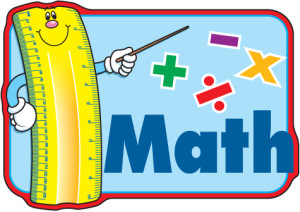October 16, 2014
 Making sure all students can compute math problems and have an understanding of how math works is a difficult task. However, the Plymouth Schools are working hard to help ensure that all students are receiving the help they need.
Making sure all students can compute math problems and have an understanding of how math works is a difficult task. However, the Plymouth Schools are working hard to help ensure that all students are receiving the help they need.
Tara Sharp spent 18 years in the classroom teaching math at the sixth grade level and is now in her second year as the corporation’s math coach.
Sharp, along with Riverside Intermediate 5th grade teacher, Terri Dennie, have spent months researching and implementing intervention steps to help ensure students are prepared for state assessment testing. However, the main goal is to make sure children have a mastery of facts for a lifetime.
The PCSC (Plymouth Community Schools Corporation) math plan requires daily math fact review and tracking of student progress.
Sharp said they have just finished training all of the teachers from K-8 in how to use the Moby Max system. She said, “The program is now being used at least ten minutes per day in each classroom as teachers create a system for their own use.” Sharp said the systems should be fully implemented within the next two weeks.
Sharp said she, with the help of PCSC Instructional Coach Janice Curtis, created a computer-based spreadsheet for teachers to keep track of each student’s progress. The program also allows teachers to post what intervention strategies they have used in their classrooms.
The spreadsheet shows which addition, subtraction, multiplication and division facts have been mastered or which ones still require more instruction. Students must show that they can give the correct answer as well as give the correct answer within a required speed. When there are certain facts that have not been mastered, students make no more than ten flash cards on targeted facts to take home as homework.
According to Sharp, research shows that students need to go from counting on their fingers to automaticity (done spontaneously or unconsciously).
Sharp said the ISTEP (Indiana State Testing for Educational Progress) testing for math will be different for this school year. She said, “The test is changing from 80 percent lower knowledge and 20 percent higher order questions to 80 percent higher order and 20 percent lower knowledge questions.”
Sharp said they will continue to use “best practices” teaching methods and check for understanding.
She said, “There is a universal concern among math teachers. We need to bridge the gap to increase understanding and make math more real for our students.”
Carol Anders Correspondent